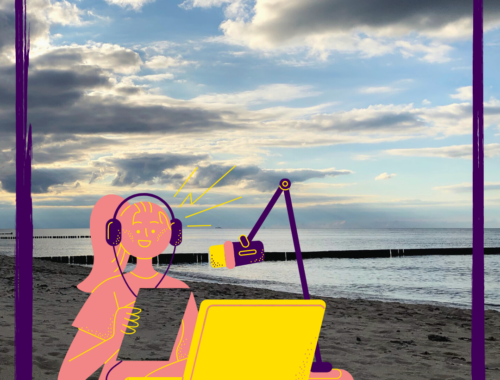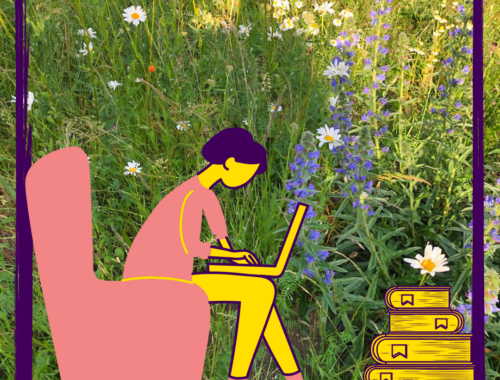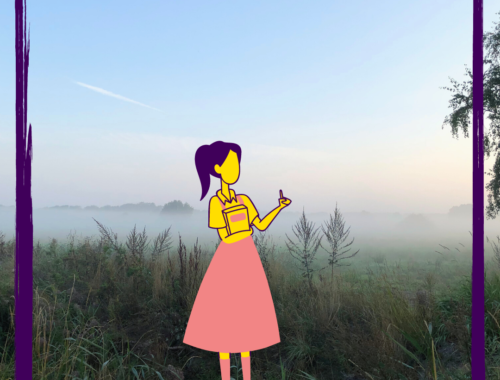5 reasons why nobody listens to your humanities podcast
Inhalt / Content
Podcasts are currently quite a hype medium. They are easy to produce, despite the currently omnipresent corona restrictions. You can listen to them wonderfully without any problems. They can be used to present complex scientific topics in an understandable way. Yes, podcasts are currently on everyone’s lips, or rather on all ears, and they have of course also reached the humanities. But although it often sounds as if a podcast can quickly and easily build up a wide reach, a lot can go wrong. From my own experience with two very different podcast projects in the humanities, I would like to tell you five things you should avoid when podcasting.
you are not podcasting regularly
Podcasts are a serial phenomenon. That is why they are so promising. If you convince your listeners* in podcasts with your voice and the way you present your content, they will quickly become fans who want to listen to you regularly. But what happens if a series breaks up over and over again? Your listeners are simply weaned off again or don’t get used to you at all. So you don’t manage to become a regular factor in the routines of your listeners. That doesn’t mean you have to publish a podcast episode every day or week, but choose a rhythm that you can follow. I podcast e.g. on my Life-Love-Literary podcast weekly and with the team podcast RaDiHum20 monthly. With both rhythms you can achieve good regular listener quotas.
You have no concept for your humanities podcast
Many blog systems, podcast providers and other entry points into the design of online media are made with the fact that everything is very simple. Just a few clicks and you are “in”. But that shouldn’t tempt you to grab your cell phone, start an audio recording app, talk away and publish it as a podcast. Because then it is not only unlikely that potential listeners will realize what you’re all about, but you’ll also land up with 1. very quickly and find yourself as a casual podcaster* without any listener connection. But don’t worry, if you don’t know how to go about creating a concept, I’m happy to help you. In this article you’ll find a lot of tips and tricks as well as a worksheet for download.
You do not plan your consequences or you plan them too well
Okay, now this is a little confusing. So once the concept of your humanities podcast is in place, you should start planning your episodes. This will give you the opportunity to stay relaxed because you always have a time buffer. Also, you will plan your episodes so that they fit together well and maybe even build on each other. It is best to plan at least two, preferably four episodes completely in advance. This includes a script, a rough schedule for each episode. But don’t write down your episodes in such detail that you can read them when you speak. With podcasts the impression of spontaneity plays a big role. The listeners* should have the feeling that you are talking to them and not that you are reading them a bedtime story. In my opinion, podcasts even need slip-ups and even language peculiarities usually do well. That’s what makes the medium informal and listeners are immediately tempted to think along with you instead of just listening to your voice.
Your Podcast is all about you
Just as with blogging, the personal touch is also important with podcasting. And of course you should choose content that interests you. But unfortunately, these two factors seem all too easily to mislead you into thinking that a podcast (blogs are usually no better) is all about the person offering it. Unfortunately, there is usually only one person who is 100% interested in what you are interested in, what your opinion is and what happens to you and that is yourself. Therefore, ask yourself with each of your humanities podcast episodes what could interest others about the topic. Fortunately, podcasts (much more so than blogs) are a medium that is not necessarily left as a communicative one-way street. If you manage to make your listeners* feel that you are talking to them, they will respond and contact you. Then you can experience in direct exchange what “those out there” are most interested in your content.
You do not dare to
To speak in public with your own voice first of all costs overcoming. To be honest, I don’t know a single person who really likes to hear his own voice and therefore trusts it completely. Besides, your voice is usually not an issue until you try it out. So just try to speak confidently. You will quickly get used to it and will also continue to train your voice. But to dare to talk freely with your own voice is only step one. Because once a podcast episode is published, it must be found. But it is unlikely to be found if you do not talk about the fact that your podcast exists. Especially if you don’t link your podcast to a website, it is not very visible to search engines. So you have to get active yourself and talk about what you podcast and what you podcast about in the social media, e.g. via Twitter or the good old word of mouth.
Success with your humanities podcast
One insight I have gained in the last 1.5 years or so of my work as a podcaster and which I would like to share with you is Of course you can be successful with your humanities podcast! Because when I started, I was not so sure about it. But especially episodes where I go a little bit more into depth will be heard very often and also very often completely. So if you’re having trouble getting the attention you want with your podcast project, it doesn’t have to be because of your content. First try to turn the five screws mentioned above and see if you can attract a lot more listeners.
But do not expect too much either. You won’t attract hundreds or thousands of listeners with humanities topics right from the start. If you get 30-100 average daily downloads in the first year, that’s a good rate. If you continue to do so regularly, you can slowly improve. You shouldn’t settle for a number less than 30, especially if you’ve been around for a while (say, a year).
Could these 5 tips help you? Did you recognize yourself or do you have a tip for future podcasters*? I am happy about your comment!
Translated with www.DeepL.com/Translator (free version)
You May Also Like

Blog and podcast, a dream team for digital teaching?
November 19, 2020
Electronic LITERATURE SEARCH: 5+1 TIPS TO FIND GOOD SCIENTIFIC SOURCES ONLINE
September 10, 2020
